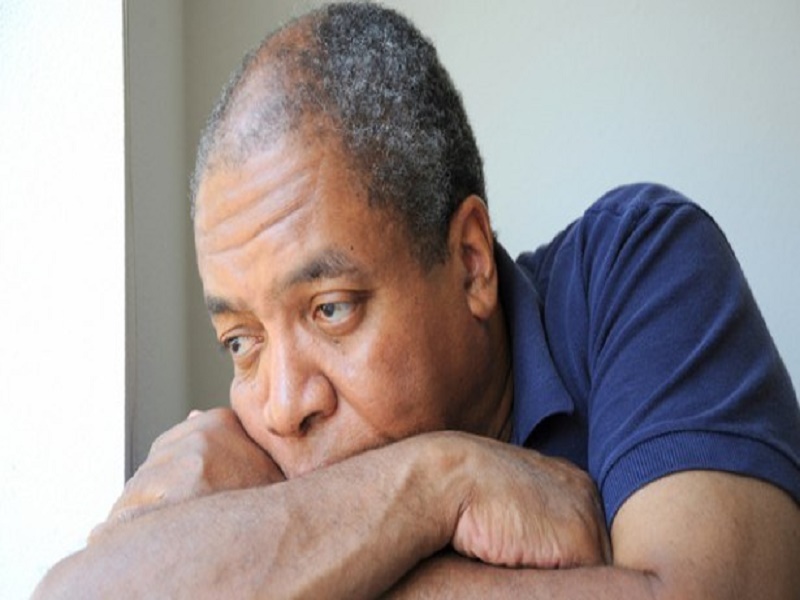
How to help a person with anxiety: 7 tips on what to do
All or almost all of us have felt anxious at some point in our lives. So, we know that this state of discomfort, feeling restlessness, hyperactivation and nervousness is highly punitive and aversive, and usually it is something that we do not want to experience.
Now, leaving a state of anxiety may not be as easy as it seems. In fact it is something complicated, especially if what it gives us is an anxiety crisis. Imagine now that who suffers it is not us, but another person that matters to us. What can we do? How to help a person with anxiety? Let’s talk about it throughout this article.
Anxiety: what is it?
In order to think about how to help a person with anxiety we must first know and understand the type of situation that is happening. And that is why a brief explanation of what anxiety is can be useful.
We give the name of anxiety to a state of deep subjective discomfort of emotional origin characterized by the presence of a strong negative affect together with a high level of activity or physiological activation, which in turn has an effect on the behavior.

We are facing a state that is usually defined as an apprehensive reaction that appears without the need for a threatening situation at present, but which tends to be linked to the anticipation of a future threat or an overflow or inability to face environmental demands , although it is not always aware of its origin.
It is important to bear in mind that in anxiety there is an interaction between a subjective or cognitive-emotional component, which allows us to perceive emotions and the state of discomfort, a biological or physiological component in which the emotional affectation generates a series of physical symptoms (the most common being palpitations, tachycardias and accelerations of the respiratory rhythm, although there may be others such as pain, dry mouth, sweat or tremors) and finally a behavioral component that includes the set of actions that take place in that state .
Anxiety crises
The existence of a certain level of stress and anxiety is common in our society, but the truth is that anxiety can often rise in such a way that it can overwhelm us, sometimes even surprisingly and without prior warning. . This is the case of what happens to us when we have an anxiety crisis.
In these crises a great discomfort suddenly arises and panic appears along with palpitations and tachycardia, feeling of suffocation and hyperventilation, abdominal or chest pain, dizziness , sweating, trembling, feeling of having a heart attack, dying, being insane or losing control of one’s body

It is also common for a sense of strangeness and unreality, known as depersonalization, to appear.
Therefore, when helping a person with anxiety that is going through a stage with frequent crisis, it is important to know that we must intervene during these as well as when they are not occurring, to prevent them .
Helping a person in this situation is not easy when we are already immersed in it , although it is possible. How to do it?
The way to help would be to try to reduce the focus on the discomfort or reduce some of the most controllable physiological symptoms, such as breathing. Likewise, it must be remembered that anxiety crises usually have a relatively short duration, of a few minutes duration , so that they end up disappearing by themselves.
Next we will see some small indications to take into account if we meet someone in the middle of an anxiety crisis. Of course, it is important to bear in mind that first of all it must be ruled out that it is a true heart attack.
1. Do not tell him to calm down
It is relatively frequent that when a person enters a crisis of anxiety or an anxiety crisis, others do not know how to react. In this sense it is usual to try to indicate that it calms down.

This type of indications are totally counterproductive : if the person could calm down just by wanting to, he would do it immediately and he would not be going through the crisis.
You can also add the load or tension that can feel the feeling recriminated by not being able to get out of the situation. Probably the reaction is not positive, since it enhances the nervousness and the feeling of overwhelm and suffocation.
2. Leave space, but offer your help
The person who is suffering from an anxiety crisis will generally feel more secure if he feels that there is someone nearby who can help and care for him at that moment.
However, it is necessary that you have some space, in the sense that it is not convenient for a large number of people to gather around you as it makes it easier to get even more nervous (something that can happen, for example, if you give us on the street).
3. Help him focus on a fixed stimulus different from his feelings of choking or suffering
Who suffers an anxiety crisis is experiencing a series of very intense symptoms in which it usually focuses attention.
One way to help them would be to try to get them to focus on some kind of different stimulus. In this sense, it may be helpful to try to maintain eye contact with you, and help them to focus attention on aspects such as your own breathing in order to imitate it.

You can also try to distract them in other ways, such as talking to them so that they focus on what we are saying instead of the symptoms, although this may not work.
4. Try to help you take deeper breaths
One of the strategies that can be useful to help a person in full crisis of anxiety is to help her control her breathing, given that in such crises one of the main symptoms is the existence of hyperventilation .
In this sense it may be useful to try to make the other person pay attention to your person and try to do a deep breathing, both in inhalation and exhalation. If you have it, you can also help using a paper bag so you can concentrate on filling and emptying it.
5. Do not get carried away by panic
Living an anxiety crisis is not exactly pleasant and generates a lot of suffering, to the point that the person can come to feel being dying or losing his mind. In this circumstance, having someone who reacts with panic and nervousness and not knowing what to do in the face of what happens can increase one’s anxiety.
That is why it is necessary to try to remain calm and act decisively , so that the way of acting of the other is a reassuring stimulus for those who have the attack.
6. Speak clearly and in a calm voice

Although the person in full crisis of anxiety can react with some hostility, the fact is that the fact that they speak to them with a firm and calm voice and clear way can help to lower the level of activation , especially if it is processing and I understand what we tell him.
7. Remind her that anxiety ends up happening
This point is only applicable if the person has already had other anxiety crises before. It is about trying to remind them that although the sensations are very intense and aversive, these crises are not dangerous for their lives and that little by little their symptoms will disappear .
Of course, we must always assess that it is truly an anxiety crisis, since we could be facing another type of problem.
